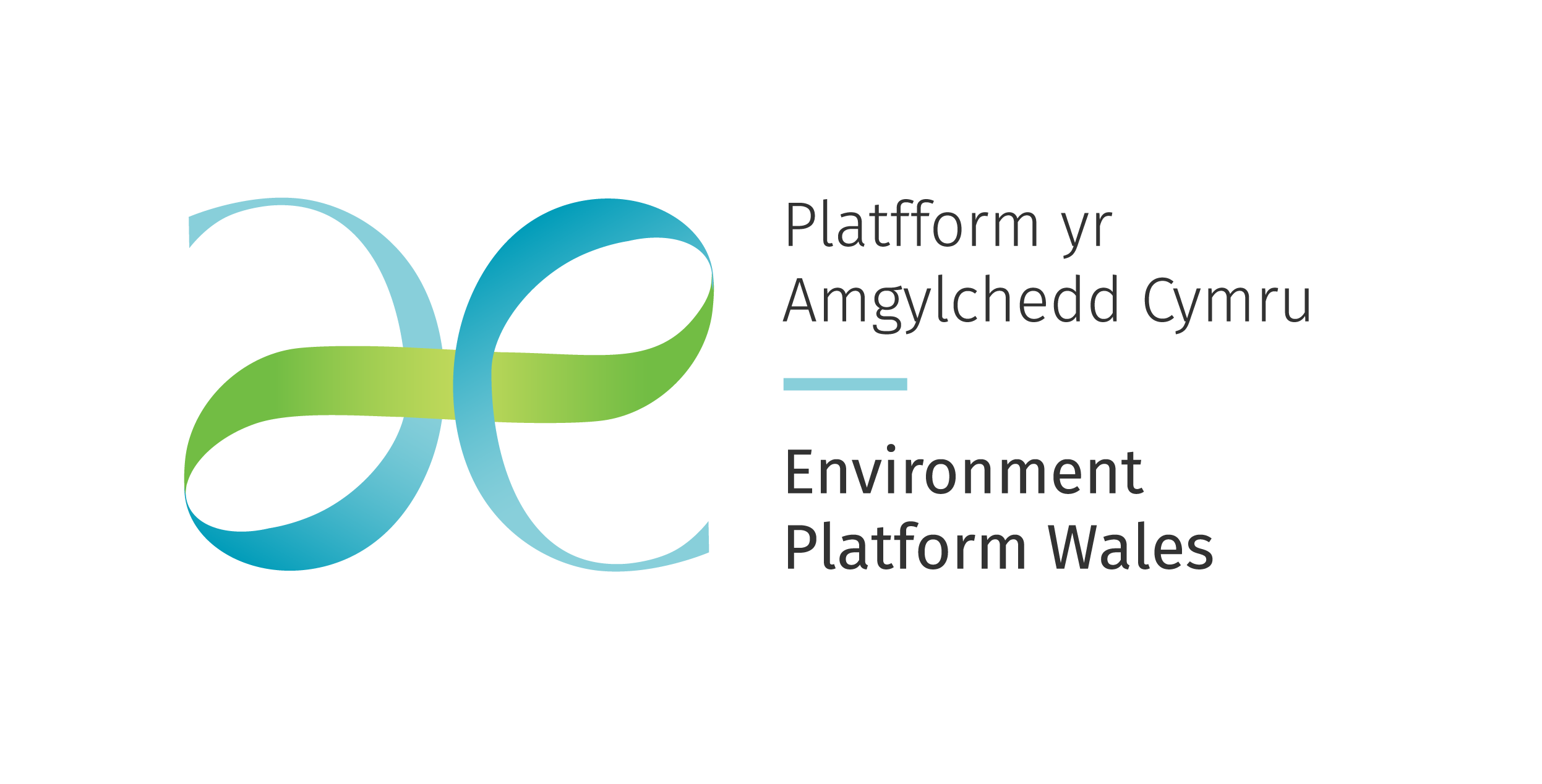
If you are seeking to deliver an impactful dissertation topic, with direct relevance to environmental policy makers or, simply looking for inspiration for your final year project, you can search for ideas below.
You can search the research questions that have been directly submitted to us, or browse other collections of research ideas from partner organisation such as Natural Resources Wales and Climate Cymru. We are still adding relevant keywords to the data, so try a different search term if nothing comes up or get in touch for support searching the database.
If you do find a question of relevance and decide to address it through your dissertation, we would really like to know about it. Please fill out the form that can be found here.
[Enter keyword and press ‘search’ or the return key]
.
Is the building industry becoming more or less sustainable in its use of materials, and its production of waste?
Summary of the Research Question / Evidence Need:
The building industry is a major consumer of materials and energy, and produces significant amounts of waste. Most of their activity relates to urban areas. Data on this is available at a UK level, but it is harder to obtain for Wales.
Keywords (discipline, other): Architecture, sustainable, materials, waste, building, energy, urban
Website/URL links: https://naturalresources.wales/evidence-and-data/research-and-reports/state-of-natural-resources-report-sonarr-for-wales-2020/evidence-needs-table/?lang=en
Looking for collaborators: No External Partner: Yes Organisation: Natural Resources Wales
Contact Details
Name: Email Address: Phone: NA
________________________________________________________________________________
Link between ambient environmental temperatures and several forms of cataract
Summary of the Research Question / Evidence Need:
https://www.ncbi.nlm.nih.gov/pmc/articles/PMC7744422/
Transient elevation of temperature promotes cross-linking of α-crystallin-client proteins through formation of advanced glycation endproducts: A potential role in presbyopia and cataracts
https://www.ncbi.nlm.nih.gov/pmc/articles/PMC7764252/
Effect of a Lens Protein in Low-Temperature Culture of Novel Immortalized Human Lens Epithelial Cells (iHLEC-NY2)
https://www.ncbi.nlm.nih.gov/pmc/articles/PMC9008244/
Associations of Humidity and Temperature With Cataracts Among Older Adults in China
https://pubmed.ncbi.nlm.nih.gov/3718905/
Rise in lens temperature on exposure to sunlight or high ambient temperature
https://pubmed.ncbi.nlm.nih.gov/3700027/
Physical factors in cataractogenesis: ambient ultraviolet radiation and temperature
https://iovs.arvojournals.org/article.aspx?articleid=2127035
The Relationship between Body and Ambient Temperature and Corneal Temperature
Keywords (discipline, other): Optometry, cataract, temperature, climate change
Website/URL links: https://onedrive.live.com/view.aspx?resid=A673B09CD3ADE8F9!70595&migratedtospo=true&redeem=aHR0cHM6Ly8xZHJ2Lm1zL28vcyFBdm5vcmRPY3NIT21oS2REa0RONzJYd2RpWWljSWc_ZT1LcEpUYUQ&wd=target%28Optometry.one%7Cc0c23a92-4ada-40c1-b549-4bf32d2ae70e%2FProject%20Ideas%7Cdc1ac558-d2fa-40bc-ae6a-a9fab3ddbc49%2F%29&wdorigin=NavigationUrl
Looking for collaborators: No External Partner: No Organisation:
Contact Details
Name: Email Address: Phone: NA
________________________________________________________________________________
Mapping exercise looking at (1) area in Wales that are deprived in nature (2) areas in Wales that are dependant on an industry / employer (3) where that industry / employer will be phased out as part of a just transition with (4) optional research into areas in Wales with an education deficit. After mapping the above, to overlay the individual maps and create a ‘heat map’ of areas in Wales where an investment in nature-based green jobs would have the maximum impact on nature, communities, and people as part of a just transition.
Summary of the Research Question / Evidence Need:
Previous research has found that the right investment in nature restoration could deliver up to 7,000 nature-based green jobs in Wales over the next decade. However, there is a real need to understand what jobs and skills need to be created where, in order to truly deliver for nature and for communities. A ‘heat map’ could help develop a spatial approach to delivering the right job in the right place. In order to ensure its relevance, the research could:
1. Link into the ongoing work of the Nature Service Wales Partnership to help shape future policy
2. Help shape the delivery of pilot projects that provide nature based green skills and jobs across Wales
3. Provide a comms piece for all work on green jobs and a just transition in the lead up to the next Senedd elections
Keywords (discipline, other): Geography, nature, industry, education, impact, GIS, Just Transition, communications, politics, policy
Website/URL links:
Looking for collaborators: Yes External Partner: Yes Organisation: RSPB
Contact Details
Name: Tabea.wilkes@rspb.org.uk Wilkes Email Address: tabea.wilkes@rspb.org.uk Phone: NA
________________________________________________________________________________
Movement of mooring lines/catenary chains from Floating Offshore Windfarms on soft sediment habitats – is the impact temporary or long-lasting?,
Summary of the Research Question / Evidence Need:
For more, and updated information, please visit https://naturalresources.wales/evidence-and-data/research-and-reports/marine-biodiversity-collaborative-research-priorities/?lang=en
Keywords (discipline, other): Impact of mooring lines from Floating Offshore Windfarms on soft sediment habitats,”Mooring lines, Floating offshore wind, Soft sediment habitats, Environmental impact, Marine ecosystems”,
Website/URL links: https://naturalresources.wales/evidence-and-data/research-and-reports/marine-biodiversity-collaborative-research-priorities/?lang=en
Looking for collaborators: Yes External Partner: Yes Organisation: Natural Resources Wales
Contact Details
Name: Email Address: marinecoastalevidence@naturalresourceswales.gov.uk Phone: NA
________________________________________________________________________________
Nature connection through tourism and the question of the ‘ideal’ tourist.
Summary of the Research Question / Evidence Need:
Access to nature and nature connection more generally is a key matter when it comes to moving the needle. In my work with national parks there is a distinction between the ‘right’ type of visitor – monied, educated, well-equipped, and invariably middle class, and the wrong kind – the bucket and spade brigade, generally working class, new to experiencing the outdoors, sorely lacking in nature connection as they are typically from urban areas. The latter deliver income to local communities, cause less trouble. The latter cause fires, leave rubbish, bring their sandwiches with them etc. etc. etc. All of our communities in the UK have been shown to be far removed from nature – we are among the least nature connected nations on the planet. The national parks strategize openly for capturing the ‘good’ kind of tourist but I feel that there are clear questions here that good research could be called to answer. There is a point at which the ‘bad’ becomes the good, through education, through exposure, through experience. All these people are setting out to meet the same need for wide open spaces, green and a sense of belonging in our natural landscapes. My question would be how can we as land managers, legislators, tourism operators and administrators meet these needs better and what levers do we have towards pushing visitors towards genuine connection? Is promoting nature based tourism one way? Outdoor recreation is another? A right to roam allowing a less prescriptive experience off the beaten path? The research is clear that nature connection aside from all other benefits moves people towards taking action on climate change. So this seems a key challenge – how do we better utilise the millions who flow into the countryside every year and move their experience away from nature being a backdrop to their pictures, to a genuine part of their lives. Should we see people as ‘the wrong kind of tourist’, or are we merely offering the wrong kinds of experiences?
Keywords (discipline, other): Politics, economics, psychology, nature connection, access, hospitality, discrimination, littering, outdoor, sports science
Website/URL links: https://cardiff.cloud.panopto.eu/Panopto/Pages/Viewer.aspx?id=1ea638c7-5faa-4b96-bdab-b1d400cadcb9
Looking for collaborators: No External Partner: No Organisation: British Mountaineering Council
Contact Details
Name: Email Address: Phone: NA
________________________________________________________________________________
Nature Connection would give all children and young people agency to manage their own mental wellbeing so that limited medical support could focus on those who require specialist help.
Summary of the Research Question / Evidence Need:
English Government research shows 87% of children have stated that being in nature makes them ‘very happy’. Connecting with nature improves mental and physical health and educational, emotional and personal development. In a recent Natural England report, the forecast Social Return on Investment (SROI) for schools that have embedded learning outside the classroom in natural environments as a whole school approach is £4.32 for every £1 invested. In addition, research shows that a close relationship with nature is four times more important than your purchasing power for generating feelings that your life is worthwhile.
This is important because children’s access to nature is inconsistent. We know that Wales is further along than England but there is still a need for ALL children to benefit.
Keywords (discipline, other): Education, mental health, youth work, PGCE, nature connection
Website/URL links:
Looking for collaborators: Yes External Partner: Yes Organisation: Nature Premium
Contact Details
Name: Sara Collins Email Address: saracollins@naturepremium.org Phone: NA
________________________________________________________________________________
Optometry questions
Summary of the Research Question / Evidence Need:
Due to an increase in temperatures people will spend more time indoors. What is the likely impact of that on myopia etc?
Worsen global poverty so how reduce cost or complexity of eyecare? From remote clinics to cheaper lens technology.
This is a really useful report with lots of ideas
Climate Change and its Impact on Eye Care
https://visionscienceacademy.org/climate-change-and-its-impact-on-eye-care/
Keywords (discipline, other): Optometry, temperature, myopia, poverty, eyecare, remote clinics
Website/URL links: https://onedrive.live.com/view.aspx?resid=A673B09CD3ADE8F9!70595&migratedtospo=true&redeem=aHR0cHM6Ly8xZHJ2Lm1zL28vcyFBdm5vcmRPY3NIT21oS2REa0RONzJYd2RpWWljSWc_ZT1LcEpUYUQ&wd=target%28Optometry.one%7Cc0c23a92-4ada-40c1-b549-4bf32d2ae70e%2FProject%20Ideas%7Cdc1ac558-d2fa-40bc-ae6a-a9fab3ddbc49%2F%29&wdorigin=NavigationUrl
Looking for collaborators: No External Partner: No Organisation:
Contact Details
Name: Email Address: Phone: NA
________________________________________________________________________________
Over what timescales do coastal habitats take to recover after storm events?
Summary of the Research Question / Evidence Need:
Evaluate extent of pressure and identify areas for intervention.
Keywords (discipline, other): Coastal margins
Marine
Freshwater
Land use and soil
Ecosystem resilience
Climate change
Biodiversity
Website/URL links: https://naturalresources.wales/evidence-and-data/research-and-reports/state-of-natural-resources-report-sonarr-for-wales-2020/evidence-needs-table/?lang=en
Looking for collaborators: n/a External Partner: Y Organisation: Natural Resources Wales
Contact Details
Name: n/a n/a Email Address: Phone: NA
________________________________________________________________________________
Psychology and behavior change topics
Summary of the Research Question / Evidence Need:
Visit the 1 in 5 website to see topics in social psychology, developmental psychology, cognitive psychology, decision making, mental health, human factors, perception and more.
https://www.1in5project.info/project-ideas
Keywords (discipline, other): social psychology, developmental psychology, cognitive psychology, decision making, mental health, human factors
Website/URL links: https://onedrive.live.com/view.aspx?resid=A673B09CD3ADE8F9!70595&migratedtospo=true&redeem=aHR0cHM6Ly8xZHJ2Lm1zL28vcyFBdm5vcmRPY3NIT21oS2REa0RONzJYd2RpWWljSWc_ZT1LcEpUYUQ&wd=target%28Psychology.one%7C0f801ffb-c9dc-49b4-8f6b-94ea415b7ac3%2FProject%20ideas%7Cc10f2185-a13e-42a6-ac7d-db50969ccfaf%2F%29&wdorigin=NavigationUrl
Looking for collaborators: Yes External Partner: No Organisation:
Contact Details
Name: Email Address: contact@1in5project.info Phone: NA
________________________________________________________________________________
Religion and Climate Change
Summary of the Research Question / Evidence Need:
According to the Pew Research Centre, some 84% of the world’s population has a religious affiliation. Whilst this figure is from 2010 and might be contested, there is no doubt that religion is globally a highly significant influence on how people understand the world and live their lives. There is a growing body of work investigating religious approaches to thinking and acting in relation to the environment and this offers a rich seam to mine for dissertation topics. The short bibliography below offers some starting points for this kind of literature-based study.
Within departments of Religious Studies and Theology that are able to support projects using qualitative research (e.g. in sociology of religion or practical theology), there would be scope for looking at particular local faith communities and their response to climate change. For example, one project might be to look at the impact of the Arocha Eco Church award project on one or two local churches. Another might be to study how environmental concerns are reflected in sermons within one or two local religious communities that have preaching as part of their religious practice.
Bibliography
Some general resources:
John A. Grim, e.d., Indigenous Traditions and Ecology : The Interbeing of Cosmology and Community (Harvard University Press, 2001)
John Hart, ed., The Wiley Blackwell Companion to Religion and Ecology (Chichester: John Wiley, 2017)
Larry L. Rasmussen, Earth-honoring Faith: Religious Ethics in a New Key (Oxford: OUP, 2015)
These sources relate more specifically to Christian theology:
Celia Deane-Drummond, The Ethics of Nature (Blackwell, 2004)
Willis Jenkins, Ecologies of Grace: Environmental Ethics and Christian Theology (OUP, 2008)
Hilary Marlow, Biblical Prophets and Contemporary Environmental Ethics (OUP, 2009)
Sallie McFague, The Body of God: An Ecological Theology (SCM, 1993)
Sallie McFague, Models of God: Theology for an ecological Nuclear Age (SCM / Fortress, 1987)
Michael Northcott, The Environment and Christian Ethics (CUP, 1996)
Keywords (discipline, other): Religion, Theology, Climate Change, Christian, ethics, eco-church, community, communities, Christian, tradition, faith, ecology
Website/URL links: https://onedrive.live.com/view.aspx?resid=A673B09CD3ADE8F9!70595&migratedtospo=true&redeem=aHR0cHM6Ly8xZHJ2Lm1zL28vcyFBdm5vcmRPY3NIT21oS2REa0RONzJYd2RpWWljSWc_ZT1LcEpUYUQ&wd=target%28Theology.one%7C6a0608a7-6fc3-4d81-a38d-f0dbdaf71f3d%2FProject%20ideas%7C9fceeadc-e4b0-43a6-96ef-a37541ed4f45%2F%29&wdorigin=NavigationUrl
Looking for collaborators: Yes External Partner: Yes Organisation: Cardiff Baptist College; Cardiff University:
Contact Details
Name: Stephen Roberts Email Address: RobertsS51@cardiff.ac.uk Phone: NA
________________________________________________________________________________




